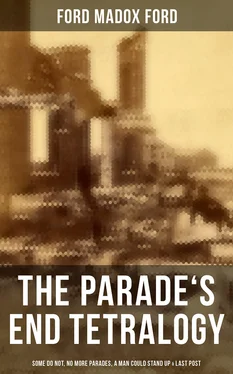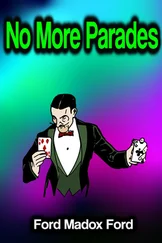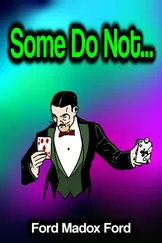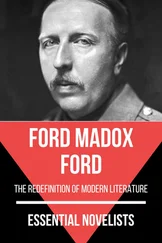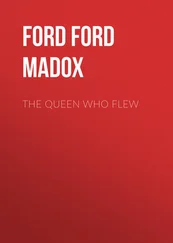He didn’t suppose he’d have the wind now: this rotten bureaucratic life! . . . If he had been in the army like the two brothers, Ernest and James, next above him . . . But no doubt he would not have liked the army. Discipline! . . . He supposed he would have put up with the discipline: a gentleman had to. Because noblesse oblige : not for fear of consequences . . . But army officers seemed to him pathetic. They spluttered and roared: to make men jump smartly: at the end of apoplectic efforts the men jumped smartly. But there was the end of it . . .
Actually, this mist was not silver, or was, perhaps, no longer silver: if you looked at it with the eye of the artist . . . With the exact eye! It was smirched with bars of purple; of red; or orange; delicate reflections: dark blue shadows from the upper sky where it formed drifts like snow . . . The exact eye: exact observation: it was a man’s work. The only work for a man. Why then were artists soft: effeminate: not men at all: whilst the army officer, who had the inexact mind of the schoolteacher, was a manly man? Quite a manly man: until he became an old woman!
And the bureaucrat then? Growing fat and soft like himself, or dry and stringy like Macmaster or old Ingleby? They did men’s work: exact observation: return no. 17642 with figures exact. Yet they grew hysterical: they ran about corridors or frantically rang table bells, asking with high voices of querulous eunuchs why form ninety thousand and two wasn’t ready. Nevertheless men liked the bureaucratic life: his own brother, Mark, head of the family: heir to Groby . . . Fifteen years older: a quiet stick: wooden: brown: always in a bowler hat, as often as not with his racing-glasses hung around him. Attending his first-class office when he liked: too good a man for any administration to lose by putting on the screw . . . But heir to Groby: what would that stick make of the place? . . . Let it, no doubt, and go on pottering from the Albany to race meetings—where he never betted—to Whitehall, where he was said to be indispensable . . . Why indispensable? Why in heaven’s name! That stick who had never hunted, never shot: couldn’t tell coulter from plough-handle and lived in his bowler hat! . . . A ‘sound’ man: the archetype of all sound men. Never in his life had anyone shaken his head at Mark and said:
‘You’re brilliant!’ Brilliant! That stick! No, he was indispensable!
‘Upon my soul!’ Tietjens said to himself, ‘that girl down there is the only intelligent living soul I’ve met for years.’ . . . A little pronounced in manner sometimes; faulty in reasoning naturally, but quite intelligent, with a touch of wrong accent now and then. But if she was wanted anywhere, there she’d be! Of good stock, of course: on both sides! . . . But, positively, she and Sylvia were the only two human beings he had met for years whom he could respect: the one for sheer efficiency in killing: the other for having the constructive desire and knowing how to set about it. Kill or cure! The two functions of man. If you wanted something killed you’d go to Sylvia Tietjens in the sure faith that she would kill it; emotion: hope: ideal: kill it quick and sure. If you wanted something kept alive you’d go to Valentine: she’d find something to do for it . . . The two types of mind: remorseless enemy: sure screen: dagger . . . sheath!
Perhaps the future of the world then was to women? Why not? He hadn’t in years met a man that he hadn’t to talk down to—as you talk down to a child: as he had talked down to General Campion or to Mr Waterhouse . . . as he always talked down to Macmaster. All good fellows in their way . . .
But why was he born to be a sort of lonely buffalo: outside the herd? Not artist: not soldier: not bureaucrat: not certainly indispensable anywhere: apparently not even sound in the eyes of these dim-minded specialists . . . An exact observer . . .
Hardly even that for the last six and a half hours:
‘Die Sommer Nacht hat mirs angethan Das war ein schweigsame Reiten . . . ’
he said aloud.
How could you translate that? You couldn’t translate it: no one could translate Heine:
‘It was the summer night came over me:
That was silent riding . . . ’
A voice cut into his warm, drowsy thought:
‘Oh, you do exist. But you’ve spoken too late. I’ve run into the horse.’ He must have been speaking aloud. He had felt the horse quivering at the end of the reins. The horse, too, was used to her by now. It had hardly stirred . . . He wondered when he had left off singing ‘John Peel.’ . . . He said:
‘Come along, then: have you found anything?’
The answer came:
‘Something . . . But you can’t talk in this stuff . . . I’ll just . . . ’
The voice died away as if a door had shut. He waited: consciously waiting: as an occupation! Contritely and to make a noise he rattled the whip-stock in its bucket. The horse started and he had to check it quickly: a damn fool he was. Of course a horse would start if you rattled a whipstock. He called out:
‘Are you all right?’ The cart might have knocked her down. He had, however, broken the convention. Her voice came from a great distance:
‘Pm all right. Trying the other side . . . ’
His last thought came back to him. He had broken their convention: he had exhibited concern: like any other man . . . He said to himself:
‘By God! Why not take a holiday: why not break all conventions?’
They erected themselves intangibly and irrefragably. He had not known this young women twenty-four hours: not to speak to: and already the convention existed between them that he must play stiff and cold, she warm and clinging . . . Yet she was obviously as cool a hand as himself: cooler no doubt, for at bottom he was certainly a sentimentalist.
A convention of the most imbecile type . . . Then break all conventions: with the young woman: with himself above all. For forty-eight hours . . . almost exactly forty-eight hours till he started for Dover . . .
‘And I must to the greenwood go,
Alone: a banished man!’
Border ballad! Written not seven miles from Groby!
By the descending moon: it being then just after cockcrow of midsummer night—what sentimentality!—it must be half-past-four on Sunday. He had worked out that to catch the morning Ostend boat at Dover he must leave the Wannops’ at 5.15 on Tuesday morning, in a motor for the junction . . . What incredible cross-country train connections! Five hours for not forty miles.
He had then forty-eight and three-quarter hours! Let them be a holiday! A holiday from himself above all: a holiday from his standards: from his convention with himself. From clear observation: from exact thought: from knocking over all the skittles of the exactitudes of others: from the suppression of emotions . . . From all the wearinesses that made him intolerable to himself . . . He felt his limbs lengthen, as if they too had relaxed.
Well, already he had had six and a half hours of it. They had started at 10 and, like any other man, he had enjoyed the drive, though it had been difficult to keep the beastly cart balanced, the girl had had to sit behind with her arm round the other girl, who screamed at every oak tree . . .
But he had—if he put himself to the question—mooned along under the absurd moon that had accompanied them down the heaven: to the scent of hay: to the sound of nightingales, hoarse by now, of course—in June he changes his tune; of corncrakes, of bats, of a heron twice, overhead. They had passed the blue-black shadows of corn stacks, of heavy, rounded oaks, of hop oasts that are half church tower, half finger-post. And the road silver grey, and the night warm . . . It was midsummer night that had done that to him . . . Hat mirs angethan .
Читать дальше
